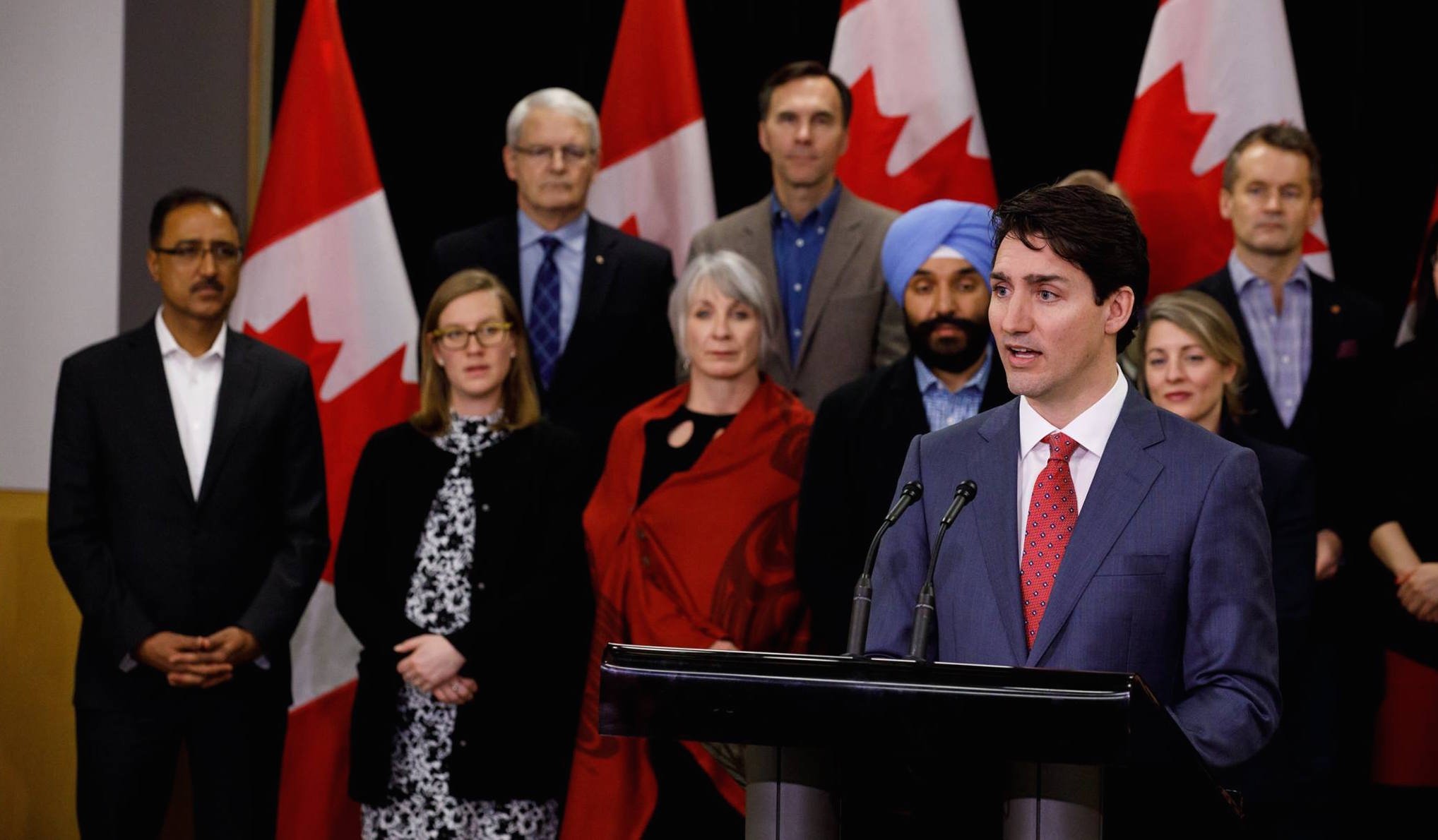Prime Minister Trudeau finally addressed the SNC-Lavalin affair in detail at a news conference in Ottawa early on Thursday morning, March 7, and came close to openly admitting that moving Jody Wilson-Raybould out of the justice ministry might have been a mistake.
Reporters for both CTV and CBC grilled the PM on the issue of the former minister’s move from justice to veteran’s affairs, which seems to have precipitated the entire affair.
They quoted Trudeau’s former principal secretary Gerald Butts’ testimony to the House of Commons justice committee the previous day. Butts told the committee that when it became necessary to shuffle the cabinet, because of treasury board chair Scott Brison’s resignation, Butts, and his boss, Trudeau, decided the best person to take on Brison’s role was the treasury board vice-chair, then Indigenous services minister Jane Philpott. They also decided the ideal person to replace Philpott would be the only Indigenous person in the cabinet, Wilson-Raybould.
Philpott cautioned them against moving Wilson-Raybould. She said the then justice minister might believe the move was motivated by her stance on SNC-Lavalin, and would not take that sitting down. Trudeau and Butts ignored that advice. When they told Wilson-Raybould she would move to Indigenous services she shocked them by flatly turning it down, not because of SNC-Lavalin, but because as an Indigenous person who had fought the Indian Act all her life, she did not feel comfortable administering that same act.
Butts told the justice committee his advice to Trudeau was that if he let Wilson-Raybould stay at justice he and the Prime Minister’s Office (PMO) would “lose control of cabinet.” In Butts’ view a prime minister and his personal entourage should be nearly all-powerful. Elected members of Parliament should know their place. When their leader offers them a job, whatever that job, they should gratefully and humbly accept, without complaint or reservation. The corollary to that view is that Wilson-Raybould had to be moved, somewhere, to set an example, pour encourager les autres.
And so, heeding his senior adviser’s counsel, Trudeau made an offer to Wilson-Raybould which in his mind she could not refuse: veterans’ affairs. The former justice minister was not happy, and pointedly asked if her move was related to SNC-Lavalin. The prime minister assured her it was not, and she reluctantly accepted.
When, not too long after that, Trudeau told reporters the fact that Wilson-Raybould was still in cabinet meant she accepted any decision the new attorney general might take on SNC-Lavalin, Wilson-Raybould resigned from veterans’ affairs.
In his news conference on Thursday the prime minister admitted that he now thinks he might have made a mistake in Wilson-Raybould’s case. Perhaps it was not such a good idea to move her, just to set some sort of example about how elected politicians must kneel before the (unelected) PMO. Trudeau did not admit his error in so many words, of course. He said there are “lessons to be learned” from this decision and that things “could have been done differently.”
The prime minister also came close to admitting that he had made a mistake in repeating the practice of his predecessors, going back to his father’s time, of creating a nearly all-powerful secretive, unaccountable and unelected PMO. He promised he would now seek expert advice as to how to change that system. Trudeau did not allude to the fact that he had explicitly promised to roll back and limit the power of the PMO both during the 2015 election campaign and immediately after the election.
It would have been better if, at his news conference on Thursday, the prime minister had been blunt and forthright in acknowledging where he now believes he erred. He chose instead to use coded and politically careful language. We should give him some credit for at least being willing to admit that he now recognizes, to use his favourite expression, he “has lessons to learn.”
Karl Nerenberg has been a journalist and filmmaker for more than 25 years. He is rabble’s politics reporter.
Photo: Justin Trudeau/Facebook
Help make rabble sustainable. Please consider supporting our work with a monthly donation. Support rabble.ca today for as little as $1 per month!




